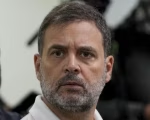The claim that Narendra Modi, India’s Prime Minister since 2014, is a dictator has been a recurring theme in certain sections of Indian and global media. Critics often point to his government’s policies, media dynamics, and handling of dissent as evidence of authoritarianism. Yet, the hyperbolic assertion that prominent journalists like Rajdeep Sardesai, Barkha Dutt, Ravish Kumar, and Dhruv Rathee would have been “looking at the stars during the day”—a euphemism for imprisonment or worse—under a dictatorial Modi regime demands scrutiny. This article explores the counterfactual scenario of Modi as a dictator, evaluates the state of Indian democracy under his leadership, and examines the freedom enjoyed by these journalists to argue that such claims are exaggerated and misaligned with reality.
Understanding the Dictator Archetype
A dictator typically consolidates power by dismantling democratic institutions, suppressing free speech, and eliminating opposition through force. Historical examples like North Korea’s Kim Jong-un or Syria’s Bashar al-Assad illustrate regimes where dissenters face imprisonment, torture, or execution. In such systems, independent journalism is virtually nonexistent, and critics are silenced through state-controlled mechanisms. If Modi were a dictator, India would resemble these models: elections would be rigged or absent, the judiciary would be a state puppet, and media would be a government mouthpiece. Let’s test this hypothesis against India’s reality.
Modi’s Governance: Authoritarian or Democratic?
Since assuming office, Modi’s government has implemented policies that critics label as authoritarian, such as the abrogation of Article 370, the Citizenship Amendment Act (CAA), and the use of laws like the Unlawful Activities (Prevention) Act (UAPA). These moves have sparked debates about civil liberties. However, India’s democratic framework remains intact. Elections are held regularly, with the Election Commission overseeing fiercely contested polls. The 2019 and 2024 general elections saw robust opposition campaigns, with voter turnouts of 67% and 66%, respectively, per Election Commission data. The opposition, including the Indian National Congress and regional parties, continues to challenge the Bharatiya Janata Party (BJP) in state and national elections.
The judiciary, while facing accusations of delays or bias, retains independence. Landmark rulings, such as the 2018 decriminalization of homosexuality and the 2023 affirmation of same-sex marriage rights, demonstrate judicial autonomy. The Supreme Court has also questioned the government on issues like electoral bonds and the CAA, contradicting the notion of a wholly subservient judiciary.
Media freedom, a key indicator of democracy, is contentious. India ranks 161 out of 180 in the 2024 World Press Freedom Index, reflecting challenges like journalist harassment and media ownership consolidation. Yet, the same media ecosystem allows vocal critics like Sardesai, Dutt, Kumar, and Rathee to thrive. A dictator would unlikely tolerate their sustained criticism, which ranges from primetime TV debates to viral YouTube videos.
The Journalists in Question
Let’s examine the four journalists mentioned:
Rajdeep Sardesai: A veteran journalist with India Today, Sardesai has consistently critiqued Modi’s policies on issues like demonetization, CAA, and farmer protests. His primetime shows and columns pull no punches, yet he faces no imprisonment. Under a dictatorship, his public platform would be unimaginable—think of journalists in Putin’s Russia, where dissenters like Alexei Navalny faced poison or jail.
Barkha Dutt: Known for her coverage of the 2002 Gujarat riots, Dutt has been a vocal critic of Modi’s governance. Her digital platform, Mojo Story, and social media presence on X amplify her critiques of BJP’s policies. While she faces online trolling, a hallmark of polarized democracies, she operates freely. In a dictatorial regime, her investigative work would likely lead to exile or worse, as seen with journalists in Erdogan’s Turkey.
Ravish Kumar: Formerly with NDTV, Kumar’s incisive critiques of Modi’s government earned him the 2019 Ramon Magsaysay Award. His YouTube channel continues to dissect government policies. Kumar has spoken about pressures on NDTV, but he was never jailed or silenced. Compare this to China, where journalists like Zhang Zhan face years in prison for reporting on COVID-19.
Dhruv Rathee: A YouTuber with millions of subscribers, Rathee’s videos meticulously criticize Modi’s policies, from economic missteps to communal polarization. Operating from Germany, he faces no state censorship in India. In a dictatorship, his content would be blocked, and he’d risk arrest upon return, akin to dissidents in Belarus.
These journalists’ ability to critique Modi publicly, without facing daytime star-gazing, undermines the dictator narrative. Their platforms—mainstream media, digital channels, and social media—thrive in India’s noisy democracy.
Counterfactual: Modi as Dictator
Imagine Modi as a dictator. The Constitution would be suspended, elections canceled, and the judiciary replaced with loyalists. The media would be state-controlled, with no room for independent voices. Sardesai’s debates would be off-air, Dutt’s Mojo Story shut down, Kumar’s YouTube channel blocked, and Rathee’s videos banned. Prisons would house dissenters, and “looking at the stars during the day” would be literal—forced labor or worse.
This scenario doesn’t align with reality. India’s media, while imperfect, hosts fierce debates. X posts from 2024 show users debating Modi’s policies freely, with hashtags like #ModiDictator trending alongside #ModiWave. The government’s critics, including these journalists, face legal notices or trolling, but not systematic erasure. The UAPA and sedition laws are concerning, with 8,000 UAPA cases filed from 2014–2022 per Ministry of Home Affairs data, but their application hasn’t silenced high-profile critics like those named.
The Polarization Factor
The dictator narrative often stems from India’s polarized political landscape. Modi’s supporters view him as a transformative leader who ended decades of coalition chaos, while detractors see him as centralizing power. This divide fuels exaggerated rhetoric. For instance, critics cite the 2020–21 farmer protests or the 2019 Kashmir lockdown as dictatorial, yet these were debated extensively in media and courts. A dictator would not allow such public contestation.
Polarization also affects perceptions of media freedom. The government’s influence over some media houses is real—several outlets align with BJP narratives. However, the existence of critical voices like NDTV, The Wire, and Scroll.in, alongside the named journalists, shows a pluralistic media landscape. In a dictatorship, such diversity would be crushed, not tolerated.
Challenges to Democracy
This isn’t to say Modi’s tenure is flawless. Concerns about media intimidation, selective law enforcement, and communal rhetoric are valid. The 2024 Press Freedom Index highlights India’s “unofficial censorship” through online trolling and legal cases. Human Rights Watch noted 2023 arrests of activists under UAPA, raising questions about dissent. These are serious issues, but they fall short of dictatorial repression. Democracies can have flaws—look at the U.S. with its Patriot Act or Turkey’s media crackdowns—without being dictatorships.
The claim that Modi is a dictator, with journalists like Sardesai, Dutt, Kumar, and Rathee suffering dire consequences, doesn’t hold up. India’s elections, judiciary, and media, while strained, function vibrantly. These journalists criticize Modi openly, reaching millions without state retribution. A dictator would not permit such freedom; their studios would be shuttered, their voices silenced. India’s democracy faces challenges, but conflating them with dictatorship is a rhetorical overreach. The stars remain in the night sky, and these journalists keep speaking—proof that India, under Modi, is far from a totalitarian state.





